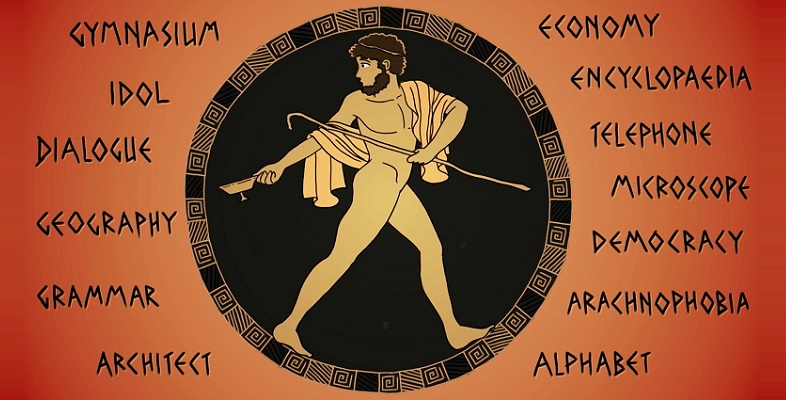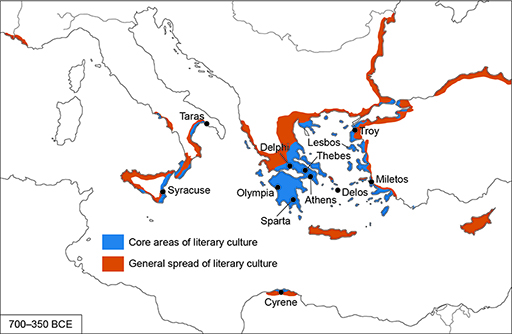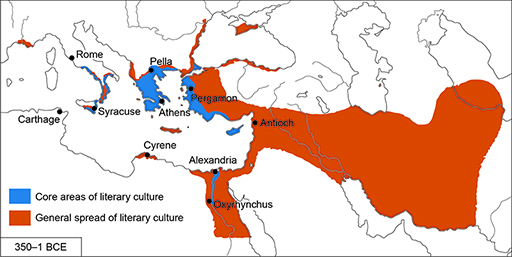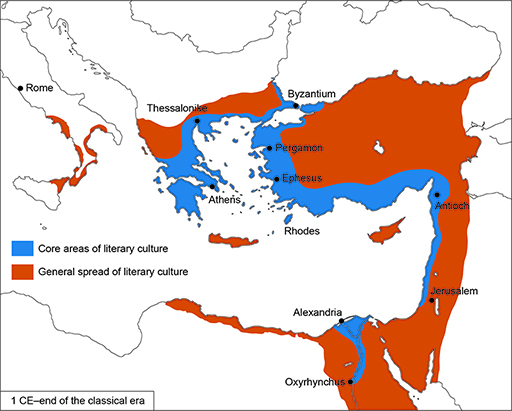Historical overview
The Greek language predates the Greek alphabet by many centuries, although without written evidence it is difficult to determine its age exactly. One point that can be made with certainty is that Greek has the longest attested history of any European language still in use today. Modern Greek differs in some respects from its ancient counterpart but it is recognisably the same language.
Activity 1 Three maps
Study the three maps outlining the spread of Greek in successive historical phases in the ancient world. Can you identify Greek-speaking areas outside modern Greece?
Discussion
The Greek language was spoken wherever Greek communities settled and flourished. In addition to the area covered by modern Greece, these include parts of Turkey, Sicily, Southern Italy and North Africa (Map 1).
Greek extended its reach after the conquests of Alexander the Great (356-323 BCE), when it became the language of culture and administration across the eastern Mediterranean and beyond. Egypt was of particular importance thanks to the foundation of Alexandria in 331 BCE and, subsequently, the great library established there by Ptolemy I (d. 282 BCE). Significant libraries were also created at Pergamon and Antioch, both in Turkey (Map 2).
Under the Roman empire, the Greek-speaking world was consolidated around the Eastern Mediterranean, where it continued as the language of culture and imperial administration (Map 3). The ‘Greek’ (eastern) and ‘Latin’ (western) halves of the Roman empire eventually separated in 395 CE, with each having its own emperor. The ‘Greek’ half survived the deposition of the last emperor in the West (476 CE), metamorphosing into the Byzantine Empire, which lasted until 1453 CE.
You can now get started with learning the language in Session 1 [Tip: hold Ctrl and click a link to open it in a new tab. (Hide tip)] .



